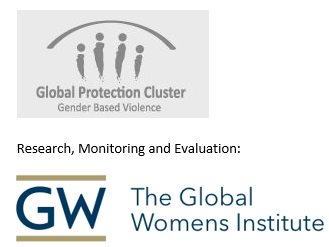In conflict and post-conflict settings, the safety and security of respondents who participate in data collection on VAWG is of particular importance. Participants in conflict settings can be placed at increased risk from their own community and in some cases the government, for speaking to outsiders. Participants can also face heightened risk within their homes from an abusive partner for speaking about violence to a data collector. The data collectors can also be at risk from the partner, community or government as these various entities may react negatively to the idea of speaking to women about violence.
While these concerns exist anytime VAWG data is collected, they take on new and important precedence in conflict-affected settings. The risk of negative consequences for refugees and internally displaced persons (IDPs) is heightened due to the lack of privacy, the confined living conditions, and the collapse of social safety nets that often occur within camps and during times of displacement.
Therefore, the safety and security of everyone involved in gathering information around violence in conflict and post-conflict settings is of utmost importance. The following safety and security measurements should be considered when collecting data on VAWG in conflict and post-conflict settings:
- Develop a security procedure and a protocol that includes: a list of potential problems that the data collection team may encounter in the field, guidelines for what responses may be possible, a point of contact for security issues in the field and a central location to help mitigate security issues and processes for communicating should a problem arise. Ensure all partners are involved in the development and implementation of this protocol.
- Monitor safety and security conditions on a regular basis and integrate conditions into the security protocol.
- Seek the buy-in of the government and other key stakeholders – at least at the general level – consider who you can inform that you are collecting data on violence.
- Present the study using a non-sensitive title such as women’s health and life experience study or gender study instead of a study on violence, even if the majority of questions pertain to VAWG.
- Have a permission letter from the government using the non-sensitive title.
- If the safety and security of collecting data from the affected population themselves cannot be assured, consider collecting qualitative data from key informants (e.g. service providers, government, community leaders including women leaders) as an alternative.
